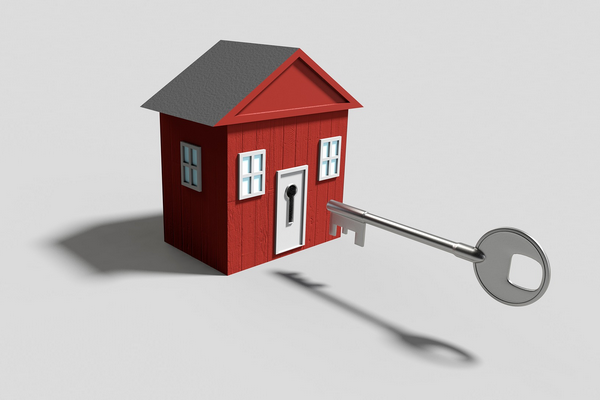
So you’ve had your offer accepted on your a house and you instruct solicitors to sort out the legal paperwork. Then you arrange your new mortgage and look forward to buying a new home. But once an offer is accepted on a house can someone else make an offer as well? Let’s take a look…
Once an offer is accepted on a house can someone else make an offer? In England and Wales even once an offer has been accepted, someone else can also make an offer. Estate agents are legally obliged to put all offers forward, but this doesn’t mean the vendor has to accept other offers. If this happens it’s call Gazumping. But to avoid it happening, you need to exchange contracts quickly.
Please also read this article to discover how you could save £71,475 on your next mortgage if you sell your house and rent before buying again. Even I was amazed when I did the calculations!
What does it mean legally to have an offer accepted when you’re buying a house?
When an offer has been accepted on a house in England and Wales, estate agents will either refer to this as ‘Under Offer’ or ‘Sold Subject to Contract’. Both these terms mean the same thing, but neither are contractually binding on either party.
Can a seller accept another offer after accepting one?
In England and Wales there’s nothing to stop a seller from accepting another offer after accepting one.
The only time when your house purchase becomes binding on you and on the seller is at the point when contracts have been exchanged.
But until this has happened, the vendor can accept any other offers their estate agent puts forward. And as already explained, if other offers are received by the estate agent before exchange of contracts, they are legally obliged to put the offer forward to the vendor.
What is it called if the vendor accepts an offer after an offer has already been accepted?
If the vendor accepts an offer instead of your offer, this is referred to as Gazumping. And according to the Cambridge Dictionary, gazumping means “to refuse to sell a house that you own to someone you have agreed to sell it to, and to sell it instead to someone who offers to pay more for it.”
In all my time of buying and selling property, I have neither been gazumped nor gazumped someone else. I’ve been fortunate that I’ve not had a vendor gazump me.
But for me I would never do this to anyone, as I don’t like the whole idea of doing this to someone. Often times the only reason people gazump someone else is through greed. As this normally happens in a buoyant property market when house prices are increasing.
However, and having said that I may consider ending negotiations with a buyer if I felt they were messing me around. If for example, the house sale process had been going on for way too long, I might insist on putting the house back on the market.
Are there ways to avoid being gazumped?
There are a number of ways in which you can reduce the risks of being gazumped. These include:
- Sell your house before buying another.
- Don’t sell your current property.
- Proceed to exchange as quickly as possible.
- Get a good solicitor who acts fast.
- Go for a lock-out agreement.
- Use a mortgage broker to arrange your mortgage.
- Befriend the vendors.
- Make your offer subject to the house being taken off the market.
Let’s take a look at each of these ideas in more detail.
1. Sell your house before buying another
If you put yourself in a strong buying position, you are less likely to be gazumped. Vendors like to accept offers from buyers who are able to proceed quickly and are not a part of a chain-sale.
So if you have sold your current house and moved to rented accommodation, you will be able to buy more quickly than another buyer who still has their house to sell.
The quicker the sale progresses to exchange, the less likely you’ll get gazumped.
If you sell your house first before you start to look for another house, you automatically put yourself in a stronger position. You are not reliant on the rest of the conveyancing chain where all sorts of delays can happen.
2. Don’t sell your current property
There are implications of not selling your current house before buying another, but it’s worth doing as it also puts you in a better buying position. If you don’t have to sell you current house, you are not in a sales-chain.
The added benefit of this approach is that you retain your current property as an investment.
3. Proceed to exchange as quickly as possible
As mentioned earlier, the quicker you can get to exchange of contracts, the less likelihood of the vendor accepting other offers. This means you need to do as much as you can to get the house purchase to exchange of contracts.
In practice this means pushing your solicitor and your estate agent to get things moving.
If you don’t like the idea of the first two ideas, there’s nothing wrong in that, but you have to accept the potential delays of being a part of a conveyancing chain. Plus if the sales-chain collapses, which could be through no fault of your own, you could find you lose your house purchase too.
If the first two options don’t apply to you, it could also mean you don’t have a house to sell. Which if this is the case you are in a better buying position in any case.
4. Get a good solicitor who acts fast
If there were a list of factors that are the biggest causes of a delay in the house-sale process, slow solicitors would be somewhere near the top.
This means you need to choose your solicitor carefully. If you don’t already have a solicitor, get a recommendation. You need to know they will be quick in their conveyancing of your house purchase, plus will also act quickly on the sale of your property too.
5. Go for a lock-out agreement
Lockout agreements are very unusual and not many people have heard of them. But essentially, a lockout agreement is a binding contract. It is for a set period of time whereby the vendor is locked-out from selling their house to anyone else.
A lockout agreement is possibly the one solution that would more or less guarantee your house purchase goes ahead. This assumes you make sure the legal agreements, your mortgage is arranged, etc. in the time-frame set in the lockout agreement.
6. Use a mortgage broker to arrange your mortgage
Another large contributing factor to a slow house buying process is the time it takes to arrange a mortgage. This is one of the reasons why I recommend you use a mortgage broker instead of going direct to lenders yourself.
A mortgage broker is best placed to find the right mortgage product to suit your set of circumstances. They’ll match the loan to the type of property you are buying and level of deposit you intend to put down.
They also know which lenders are the faster acting companies, but also they will highlight the slow-moving lenders too.
A mortgage broker will also be able to help you to get a mortgage in principle in place. This can help to speed the process up too.
7. Befriend the vendors
You want to make it as difficult as possible for the vendors to gazump you. I always suggest you look at any property you are buying for a home at least twice. Don’t just use this time to view the property, use this time to build a rapport with the vendor.
A vendor would find it much harder to gazump you after you’ve befriended them.
8. Make your offer subject to the house being taken off the market
You must make sure that once your offer is accepted the property isn’t still on the market.
I always make sure the estate agent takes a property off the market when I make an offer that’s accepted. The last thing you need is to proceed on buying a property, only to find the estate agent is still showing other people around.
If the agent is still showing other people around, there’s a high chance other offers are going to be made. Which could mean you are wasting your time.
What are the consequences of someone else making an offer on a house?
If the vendor of the house you are buying accept another offer, this will have the following implications:
- Depending on how far down the conveyancing process you have gone, will depend on the cost to you. But it will likely cost you at least some of your solicitor fees, the search costs and possibly the surveyor fee.
- It could cost you more money if you choose to match the new increased offer. Or you could choose to out-bid the new offer.
- It’s possible to take out insurance to cover for a failed completion. This insurance is to cover for the lost legal fees. But not all solicitors offer this type of insurance.
Making an offer on a house before selling yours
The problem with making an offer on a house before selling yours is that the vendor is unlikely to consider your offer.
This means you are better off getting your house sold subject to contract, before you make an offer on another house. But this doesn’t always work and often times people find their dream home before their own house is sold.
There are quick-sale solutions to this problem, which includes using the services of a house buying company, but you are mostly better to secure the sale of your home first.
What to do if offer accepted on house but still on market?
You should refuse to continue with the sale if an offer has been accepted on a house but it’s still on the market.
You can do this via the estate agent rather than directly to the seller. If the seller still refuses to take the house off the market, you may decide to find another house to buy instead.
What should you do if your offer is accepted on house but you changed your mind?
If an offer has been accepted on a house, but you’ve changed your mind, you must inform the estate agent immediately, who will pass this on to the seller for you.
So long as the purchase hasn’t progressed beyond exchange, usually there won’t be any come-back on you. But the agent may be wary of future offers from you.
Please don’t forget to read this before you leave…
Please don’t forget to also read this article to discover how you could save £71,475 on your next mortgage if you sell your house and rent before buying again. As I said earlier, even I was amazed when I did the calculations!
I hope you’ve enjoyed this article on ‘once an offer is accepted on a house can someone else make an offer‘
If you’ve enjoyed this article on once an offer is accepted on a house can someone else make an offer please share it on your favourite social media site.
Also, if you have any questions, please feel free to comment below too. Alternatively, if you need more help with selling your house privately, please feel free to contact us on our contact us page here. Or join the discussion and ask your question in the property forum.




